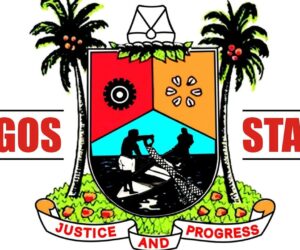Visa has announced plans to enable gig workers and digital creators in emerging markets, including Nigeria, to receive their payments directly in stablecoins through its Visa Direct platform. According to Ivan Ponomarov, Head of Visa Direct for Central and Eastern Europe, the Middle East and Africa at Visa, “the service is poised to significantly benefit gig workers and content creators across Nigeria and Africa. “
Ponomarov, in an exclusive comment sent to Technext, emphasised the development was designed to remove many of the barriers freelancers face when working across borders.
“The recent announcement by Visa to pilot stablecoin payouts via its Visa Direct platform is poised to significantly benefit gig workers and content creators across Nigeria and Africa,” Ponomarov said. “By enabling platforms to pay out in USD-backed stablecoins (such as USDC) directly into creators’ or freelancers’ stablecoin wallets, the move removes many of the traditional hurdles of cross-border payments: delays, high fees, currency volatility and limited banking access.”
He added that the ability to receive and hold value in a dollar-pegged stablecoin provides “greater financial security and flexibility” in regions like Nigeria, where inflation and foreign exchange constraints have long challenged freelancers working for international clients.

This marks another significant step towards bridging traditional finance and digital assets, offering faster, cheaper, and more inclusive payment options for millions of freelancers and content creators across Africa.
According to reports, the payment giant is piloting a system that allows businesses and online platforms to send USD-backed stablecoins such as USDC directly into recipients’ crypto wallets. This move could transform how independent workers and small businesses receive global payments, especially in countries with volatile currencies or limited access to banking infrastructure.
Visa’s push comes as demand for fiat-backed digital tokens grows among global gig workers and online creators who often struggle with cross-border payment delays, high remittance costs and foreign exchange risks. For Africa’s booming digital workforce, the move could prove particularly impactful.
Visa is boosting the gig economy across Africa
Over the past few years, Africa has seen an explosion in its digital workforce. From freelance developers and designers to influencers and online educators, millions of young Africans are tapping into the global gig economy. Yet, one persistent obstacle remains: getting paid efficiently and securely.
Traditional cross-border transfers often involve multiple intermediaries, slow settlement times and high transaction costs. Many international platforms also require recipients to have bank accounts in supported countries, limiting participation from emerging markets. Visa’s new initiative could help break those barriers.
Also read: MoneyGram bets on stablecoins to power remittances with launch of USDC app
“Faster payouts, in many cases near-instant, and broader access for those working across borders or for international platforms will give young creators, freelancers and digital gig-economy workers a more level playing field,” Ponomarov noted. “Over time, cheaper, faster and more transparent payments may draw more participants into the creator and gig ecosystem, boosting incomes and helping the continent’s growing digital workforce capitalise on global opportunities.”


The integration of stablecoin payments into Visa Direct aligns with a broader industry trend, as major payment networks and fintech firms explore blockchain-based solutions to streamline global remittances and settlements. For Visa, this is not the company’s first foray into digital currencies. The firm has previously partnered with crypto platforms and wallets to facilitate crypto-linked card payments and settlements using USDC on the Ethereum and Solana blockchains.
With the pilot programme, Visa aims to leverage stablecoins’ speed and transparency while maintaining regulatory and compliance standards. The company’s approach reflects its long-term strategy to serve as a bridge between traditional banking systems and the emerging world of digital assets.
In markets like Nigeria, where crypto adoption is among the highest globally, this move could offer an alternative pathway for cross-border earnings, especially for young digital professionals seeking stability in dollar-denominated assets. It could also encourage greater formal participation in the global gig economy by providing trusted and regulated on-ramps for digital earnings.
If successful, Visa’s stablecoin payout pilot could reshape how workers in developing economies receive and manage their earnings, making global work more accessible, equitable and efficient than ever before.








